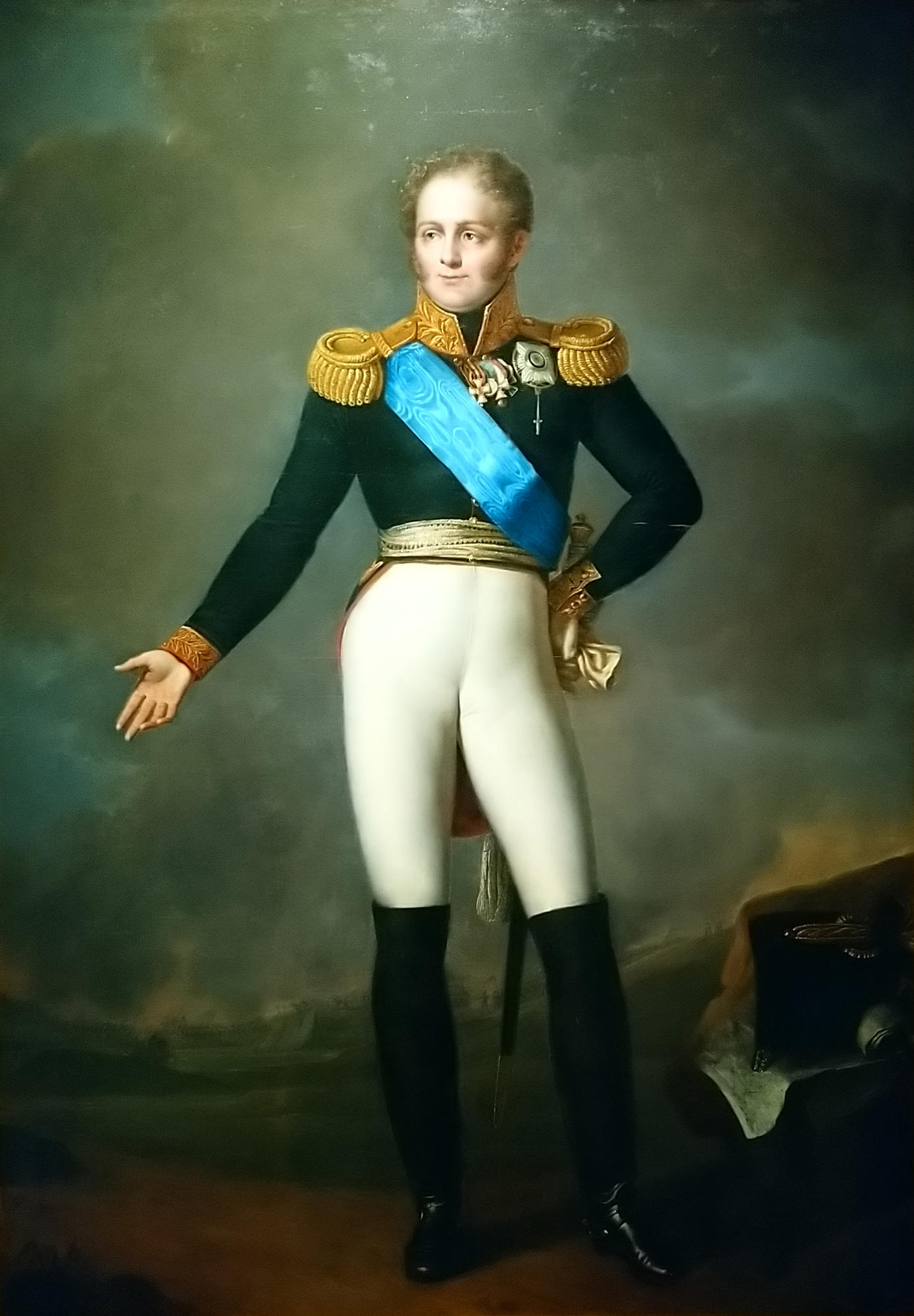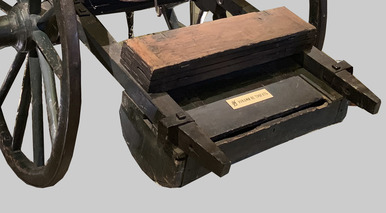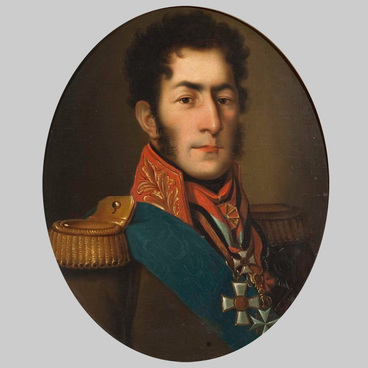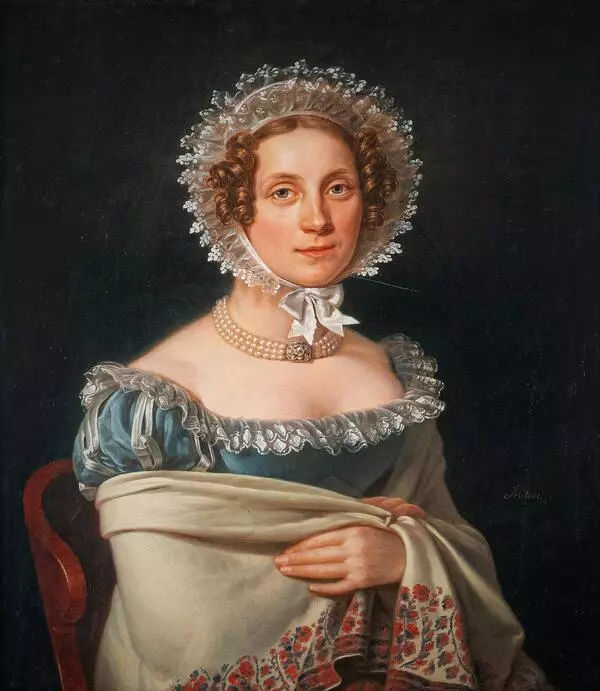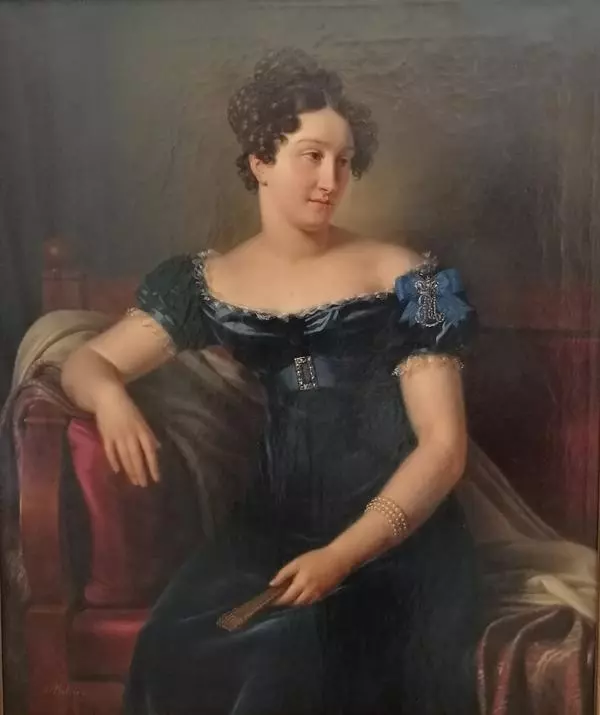The portrait of Emperor Alexander I was purchased from the son of Nikolai Ivanovich Podkonnikov, the famous Moscow artist and restorer. The painting has traces of antique restoration. These traces hide the absence of the author’s paint layer. It is noteworthy that the face and the background are painted in a different manner. This probably indicates that the artist did not have time to complete the portrait.
Alexander I became especially popular among the Russian people after the brilliant victory over Napoleon. In Europe, the Russian Emperor was called nothing more than “the king of kings” and “the liberator”. People close to Alexander I said that he “had the ability to conquer people”s minds and to penetrate people”s souls”, was extremely seductive and convincing. When in Paris, the Emperor confirmed these words with his actions.
This happened when the Russian troops entered the territory of France in 1814. Alexander I won the love and respect of hundreds of thousands of Parisians. The Emperor strictly ordered all units of the army to treat the locals in a friendly manner, “defeating them with generosity rather than revenge, refraining from the imitation of the French troops” behavior in Russia’.
On December 12 (24), 1812, on his birthday, Alexander I gathered the army generals and made a statement to them. He said that they had saved not only Russia, but all of Europe. These words determined the concept of the future plan of the Russian army; with this phrase the Emperor confirmed his own conviction that the war should be transferred to Europe.
In 1813, when the Russian campaign failed, the enemy was defeated and, having suffered catastrophic losses, left Russia, the Europeans had the first real hope of ending the French dictatorship and achieve the long-awaited freedom. Alexander I was surrounded by people who thought that it was necessary to stop at the border, based on the experience of the three-year struggle with Napoleon. Despite their opinion, the Emperor was resolved to go all the way and defeat the powerful French Empire.
On January 1 (13), 1813, the main Russian army of Field Marshal Kutuzov crossed the border of the Russian Empire on the Neman River in the Merechi region. Three columns marched towards the Polish city of Plock, located north of Warsaw, and pushed the Saxon-Polish-Austrian troops beyond the Wisla. This military maneuver marked the beginning of the foreign campaign of the Russian army. The campaign ended in April 1814 with the complete defeat of the French and the overthrow of Napoleon.
Alexander I became especially popular among the Russian people after the brilliant victory over Napoleon. In Europe, the Russian Emperor was called nothing more than “the king of kings” and “the liberator”. People close to Alexander I said that he “had the ability to conquer people”s minds and to penetrate people”s souls”, was extremely seductive and convincing. When in Paris, the Emperor confirmed these words with his actions.
This happened when the Russian troops entered the territory of France in 1814. Alexander I won the love and respect of hundreds of thousands of Parisians. The Emperor strictly ordered all units of the army to treat the locals in a friendly manner, “defeating them with generosity rather than revenge, refraining from the imitation of the French troops” behavior in Russia’.
On December 12 (24), 1812, on his birthday, Alexander I gathered the army generals and made a statement to them. He said that they had saved not only Russia, but all of Europe. These words determined the concept of the future plan of the Russian army; with this phrase the Emperor confirmed his own conviction that the war should be transferred to Europe.
In 1813, when the Russian campaign failed, the enemy was defeated and, having suffered catastrophic losses, left Russia, the Europeans had the first real hope of ending the French dictatorship and achieve the long-awaited freedom. Alexander I was surrounded by people who thought that it was necessary to stop at the border, based on the experience of the three-year struggle with Napoleon. Despite their opinion, the Emperor was resolved to go all the way and defeat the powerful French Empire.
On January 1 (13), 1813, the main Russian army of Field Marshal Kutuzov crossed the border of the Russian Empire on the Neman River in the Merechi region. Three columns marched towards the Polish city of Plock, located north of Warsaw, and pushed the Saxon-Polish-Austrian troops beyond the Wisla. This military maneuver marked the beginning of the foreign campaign of the Russian army. The campaign ended in April 1814 with the complete defeat of the French and the overthrow of Napoleon.
